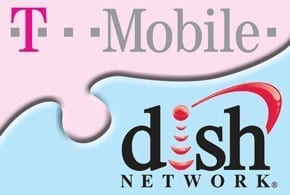6/5/2015

Talks are underway for what could potentially be the third gigantic cross-platform communications merger this year. Dish Network, the nation’s second-largest satellite provider and America’s fourth-largest wireless company, T-Mobile; have begun preliminary negotiations for a merger. This follows the nearly finalized AT&T’s $49 billion acquisition of leading satellite provider, DirecTV, and Charter Communications recent announcement that they are acquiring both Time Warner Cable and Bright House networks, becoming second leading cable provider aside from Comcast. If the deal comes together, Dish CEO Charlie Ergen will become the company’s Chairman and T-Mobile CEO, John Legere, would remain in that position for the new company. Although the deal would be expected to pass regulatory review, there is a possibility that regulators might not be willing to give the combined company a larger portion of the finite and limited broadband spectrum than industry leader Verizon. Regulators pressured Comcast to pull out of a deal to buy Time Warner due to the fact that the merger would have given the newly-formed company over 40 percent of the total broadband market.
While the Dish-T-Mobile merger would not be as large as the potential Comcast-Time Warner acquisition, it would put the company in a very competitive position. Specific financial details have not been released; however, the two companies are on a roughly equal footing. Dish’s market capitalization is $33 billion and T-Mobile’s is $31 billion. T-Mobile has roughly 44.7 million customers in all of its factions, and Dish has 13.8 million satellite customers and 591,000 internet subscribers. Dish recently purchased in coordination with two smaller firms, $13.3 billion of wireless spectrum in a government auction, which ranked only behind AT&T’s $18.2 billion purchase. Dish made the massive transaction despite not having a wireless network to operate within it. The company acknowledged that it had no desire to build a network of its own. Although having a relative miniscule market share of wireless customers compared to rivals Verizon and AT&T, T-Mobile has led the industry in new customer acquisition in recent quarters. Dish’s additional spectrum potential could help T-Mobile dramatically increase its subscriber count. Deutsche Telekom owns 66 percent of T-Mobile and the company has made several prior attempts at selling or merging the company and Dish has come close in failed bids to purchase Sprint, the nation’s third leading carrier, as well as wireless provider Clearwire over the past few years.
The negotiations may still become complicated, however, as Dish’s Egran has become notorious for his shrewdness in closing a deal. Dish has come close in failed bids to purchase Sprint, the nation’s third leading carrier, as well as wireless provider Clearwire over the past few years. Deutsche Telekom owns 66 percent of T-Mobile and the company has made several prior attempts at selling or merging as well. The company also purchased carrier MetroPCS in 2013. If a deal does come together, it remains to be seen if regulators will approve the deal without making any drastic modifications. Some experts believe that the fact that companies operate in different sectors, the diversification may help to create stronger market competition in an era of large-scale consolidation. The main concern, however, is the amount of broadband spectrum the combined companies would possess. It is possible that the combined company may be required to sell off a portion of that spectrum, although not a guarantee. Although having approved most of the recent consolidation attempts, there is a slight possibility that regulators may want to put the brakes on the limitation of options in the industry. At the same time, given the race to get large, fighting against the merger could spell trouble, as both companies become dwarfed by rivals, eventually creating less competition and a weaker overall market.
Sources:
CNN Money – Brian Stelter
Wall Street Journal – Ryan Knutson, Thomas Gryta, and Shalini Ramachandran
Washington Post – Brian Fung


Join the conversation!